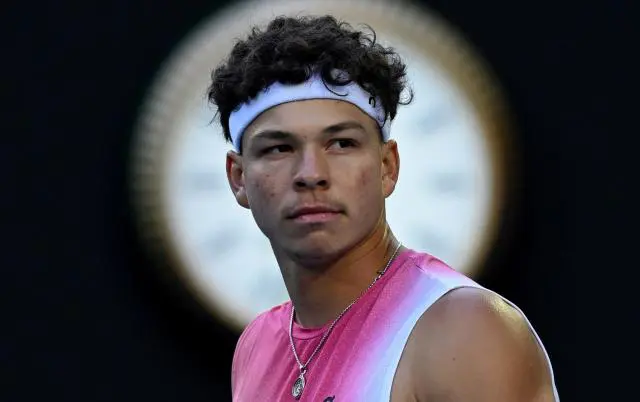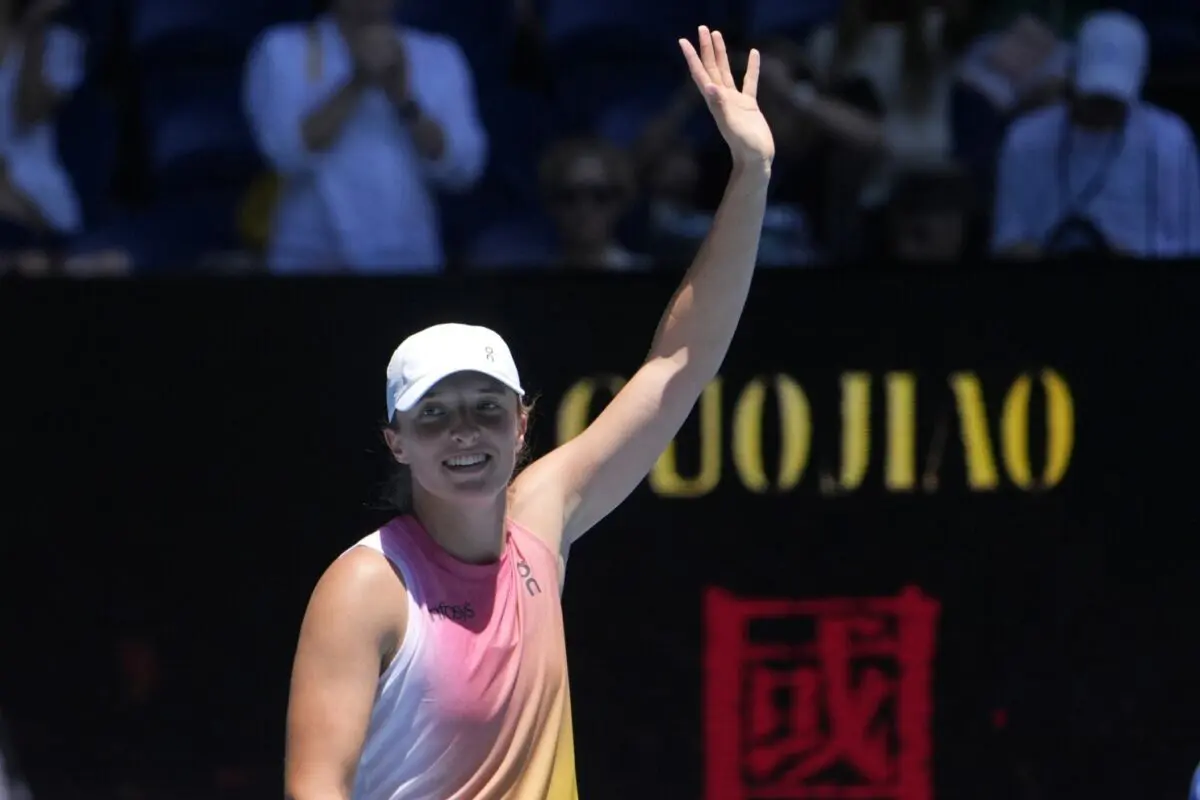The recent comments made by Ben Shelton, a 22-year-old rising star in the tennis world, have sparked widespread discussion regarding the treatment of players by broadcasters during the Australian Open. After reaching the semifinals with an impressive victory over Lorenzo Sonego, Shelton didn’t hold back in his post-match press conference, voicing concerns about the negativity presented in the media towards the players. His statements not only criticize the treatment of players but also reflect a broader issue within sports journalism that many athletes have been voicing for some time now.
At the heart of Shelton’s criticism were the actions and remarks made by Channel 9 sportscaster Tony Jones, which he deemed disrespectful to players and fans alike. Shelton’s candid remarks about the media’s handling of on-court interviews have not gone unnoticed, raising questions about how broadcasters approach their duties in a high-stakes environment like the Australian Open.
Media Dynamics and Player Treatment
As a professional athlete, navigating the media landscape can be an intriguing challenge. Ben Shelton has put this issue at the forefront, highlighting how the dynamics during post-match interviews can significantly impact players’ experiences. He pointed out how the questions posed can often be inconsiderate and detract from the celebration of victories.
The Tony Jones Controversy
One of the most striking moments which prompted Shelton’s remarks involved Channel 9 sportscaster Tony Jones. After Djokovic’s deportation controversy two years ago due to COVID-19 protocols, Jones appeared to reference this history in a derogatory manner during a live broadcast, urging fans to ‘kick him out’. This incident alone left a sour taste not just for Djokovic, who found the comments insulting, but also for many viewers who believed that such statements upset the dignity of the sport.
Jones did later apologize, admitting that he had ‘overstepped the mark,’ yet the implications of his comments linger on. The incident illustrates a rare instance where the fault lies not solely with the athletes but extends to the media’s responsibility in shaping narratives surrounding them. Furthermore, it raises a fundamental question: Should athletes be forced to endure such treatment during moments of triumph?

Impact on Young Players
The pressure of post-match interviews can be particularly strenuous for younger athletes who are still finding their footing in the environment of high-performance sports. Shelton specifically called attention to Learner Tien, a 19-year-old player who emerged triumphant against the formidable Daniil Medvedev late at night. Tien’s interview, conducted at the unearthly hour of 3 a.m., showcased the difficulties young players endure. With exhaustion palpable, his interaction with the media devolved into an uncomfortable and mocking experience, something Shelton described as ’embarrassing and disrespectful.’
This situation leads fans and analysts alike to consider the broader implications such interviews can have on emerging athletes. Rather than being platforms for celebration, they can morph into stressful and awkward encounters rife with inappropriate jokes and pointed questions that can leave lasting effects on the young players’ confidence and mental health.
Striking a Balance: Media and Players
Finding a harmonious balance between media engagement and the well-being of athletes is crucial. Shelton emphasized the importance of fostering a supportive media environment that uplifts players and brings positivity into their successes rather than dragging them into negativity. He stated, “I feel like broadcasters should be helping us grow our sport and help these athletes who just won matches on the biggest stage enjoy one of their biggest moments.”
The narrative emerging from this discussion underlines how crucial it is for media professionals to approach their interviews with empathy and respect. By doing so, they can play a pivotal role in enhancing the sport’s atmosphere and promoting the growth of the game itself.
Racial Undertones in Sports Interviews
Another facet of Shelton’s critique revolved around the racial dynamics in sports journalism. During an interview following his fourth-round match against Gael Monfils, an interviewer made an inappropriate remark about their shared racial background, asking Shelton if Monfils could be his father. Although Shelton was careful to state he does not believe the interviewer intended any malice, he noted how the comment was still out of place and uncomfortable, highlighting the need for more sensitivity in sports reporting.
Prevalence of Insensitive Questions
Finding oneself continually answering questions that may lend themselves to naïve or even prejudicial assumptions strengthens the argument for improved practices in sports journalism. Athletes should never feel alienated or diminished by insensitive commentary. The media plays a critical role in how athletes are perceived and treated, and the balance between professionalism and sensitivity is paramount, particularly when race is involved.
In an environment that is progressively becoming more diverse, journalists must adapt their questions. This approach will foster an environment of inclusivity rather than creating division or discomfort among players. Being conscientious of language and the underlying implications of questions is not only respectful but also enriches the narratives of the athletes involved.

Moving Towards Positive Change
Change is often a slow process, but with the courageous voices of players like Shelton and others, there is hope for improvement. The issues highlighted need to be addressed consciously by networks and their representatives to foster healthy interactions between players and media.
To support this change, organizations can establish guidelines for how interviews with players should be approached, ensuring that respect and dignity are prioritized, regardless of the outcomes of matches. Further engagement with players themselves on what they find acceptable can lead to a more democratic process that benefits all involved.
Moreover, networks should focus on equipping their broadcasters with the proper training. Techniques should be adopted to facilitate genuine dialogue rather than shock journalism that seeks out negative narratives. The future of sports journalism rests on its ability to adapt and embrace positivity, rather than sensationalism.
Conclusion: A Call for Respect in Sports Media
As the conversation surrounding media treatment of athletes continues to evolve, one thing remains clear: it’s essential for broadcasters to approach their responsibilities with a sense of respect. Athletes put their all into their performances, and the aftermath should reflect their hard work and dedication rather than becoming an arena for humiliation or mockery. Ben Shelton’s criticism shines a light on an important aspect of sports culture that requires urgent attention. It is a pivotal moment for media outlets to introspect and prioritize respect in their interactions with players.

Hi there! I’m Jade, a 38-year-old gossip journalist with a passion for uncovering the juiciest stories in the world of celebrity news. With years of experience in the industry, I love sharing the latest trends and insider scoops.



